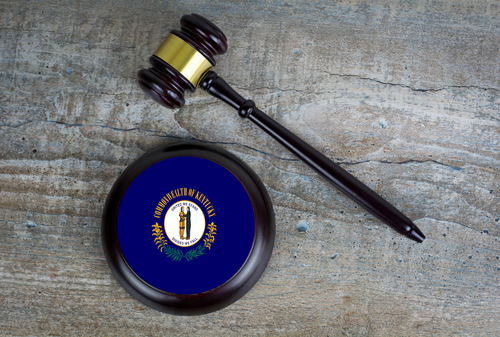This judge would rather not be called 'your honor'

Image from Shutterstock.
A federal judge in Louisville, Kentucky, would rather be called “judge” than “your honor.”
U.S. District Judge Benjamin Beaton of the Western District of Kentucky explained why in a May speech published last month by the Harvard Journal of Law & Public Policy.
Reuters covered his comments.
“A daily dose of honorifics can’t help but affect any judge and not necessarily in a good way,” said Beaton, an appointee of former President Donald Trump. Beaton thinks that judges should “think less of their status relative to others and more about their status relative to the law.”
Beaton said “your honor” is a title of “nobility that English judges apparently borrowed from French hereditary aristocrats.”
“For goodness sakes, this country fought a war and wrote a Constitution to blot out titles of nobility,” he said.
Beaton warned of “black-robitis” that can set in when judges decide cases based on their status as a judge and their “moral philosophy or utilitarian calculus.”
“Judges aren’t the law, despite whatever Yale might be teaching these days,” Beaton said. “And what judges say and write doesn’t supplant the actual law as written down in the Constitution and code books. What judges say only really matters if it’s necessary to resolve an ongoing dispute. So maybe the country would be better off if the legal profession devoted less attention to the status of judges and more attention to the act of judging.”
Rather than making the law, federal judges apply law made by someone else, Beaton said.
Beaton said he spends a lot of time writing decisions that explain his interpretations of the law. The aim is to reinforce “the perception—and the reality—of a legal system driven by judges judging, rather than your honors choosing.”
He also criticized requests for “worldwide” injunctions against the United States that cite a judge’s inherent authority as a justification.
“This is a bold request indeed! (In chambers we call them hold-my-beer motions.) Are the lawyers aware that the Senate and president just a few months ago made me a judge over only one-half of one state? And now they want me to tell the entire federal government what it can’t do anywhere in the world?” he said.
Nationwide injunction requests based on statutory authority, however, are different because they involve a request to faithfully execute Congress’ command, he said.
He explained the difference this way: “Flipping the default from ‘Why not?’ to ‘Says who?’ is one of the most important ways to refocus on the content of the law rather than the identity of the judge.”



